What is a Developmental Editor? You can get critique feedback from a pro! #writing #AmWriting #WriteTip #WritersLife
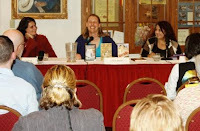 Expert writers often share adviceI’ve released a new book on the craft of writing, called
YouCan Write for Children
: How toWrite Great Stories, Articles, and Books for Kids and Teenagers. Tocelebrate the release, I’m sharing a excerpt from the chapter on Critiques. So far I've shared theintro to the chapter and advice on getting feedbackfrom family and friends; discussed some basics about critiquegroups; shared challengesto watch out for in a critique group, and listed specific charactertypes to watch out for in your critique group, and taking classes toimprove your writing. Now let's look at one final option, hiring a professionaleditor or critiquer.
Expert writers often share adviceI’ve released a new book on the craft of writing, called
YouCan Write for Children
: How toWrite Great Stories, Articles, and Books for Kids and Teenagers. Tocelebrate the release, I’m sharing a excerpt from the chapter on Critiques. So far I've shared theintro to the chapter and advice on getting feedbackfrom family and friends; discussed some basics about critiquegroups; shared challengesto watch out for in a critique group, and listed specific charactertypes to watch out for in your critique group, and taking classes toimprove your writing. Now let's look at one final option, hiring a professionaleditor or critiquer.Hiring a Pro
It’s tempting to stick with trading manuscripts for free,and you may get some excellent feedback that way. However, getting feedbackfrom family, friends, and even other writers might not be enough to perfectyour work. Many critique partners won’t want to read your manuscript through multiplerevisions. And unless they are experienced writers and writing teachers, critiquepartners may miss issues a professional editor would catch.
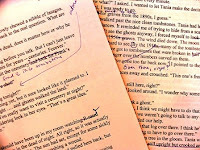 Hiring a pro may provide better advice. You might ask afriend to help you bandage a scraped knee, but if you have a bone sticking outof your leg, you’re going to the hospital. When the situation is serious,professional experience counts, so if you are serious about your writing,consider using a professional editor.
Hiring a pro may provide better advice. You might ask afriend to help you bandage a scraped knee, but if you have a bone sticking outof your leg, you’re going to the hospital. When the situation is serious,professional experience counts, so if you are serious about your writing,consider using a professional editor. Professional developmental editors can help writers shapetheir manuscripts. They can help beginning or intermediate writers identifyweak spots in their skill sets, acting as a one-on-one tutor. They provideexpertise that family and friends, and even critique partners, often lack. Aprofessional editor will prioritize your work because it’s a job.
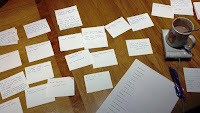 Some of my critique clients have mentioned that they’vetaken a manuscript through a critique group, but they know it still needs work.They’ve gone as far as they can with critique group help, so they’re turning toa paid critique. If someone is paying me several hundred dollars to critique anovel, I’m going to devote my time to getting it done well and quickly. I’lldig deep and be as tough – but helpful – as I can be. My novel critique letterstypically run five or six single-spaced pages, with comments broken down intocategories such as Characters, Setting, Plot (Beginning, Middle, and End),Theme, and Style. Most critique group members don’t have that kind of time,even if they have the skills to identify the problems.
Some of my critique clients have mentioned that they’vetaken a manuscript through a critique group, but they know it still needs work.They’ve gone as far as they can with critique group help, so they’re turning toa paid critique. If someone is paying me several hundred dollars to critique anovel, I’m going to devote my time to getting it done well and quickly. I’lldig deep and be as tough – but helpful – as I can be. My novel critique letterstypically run five or six single-spaced pages, with comments broken down intocategories such as Characters, Setting, Plot (Beginning, Middle, and End),Theme, and Style. Most critique group members don’t have that kind of time,even if they have the skills to identify the problems. If you aren’t sure if you need professional help, do a trialrun with a manuscript you’ve finished. Send out a half dozen queries to agentsor editors and see what kind of response you get. I’ve had clients come to me becauseeditors have turned down a manuscript they “didn’t love enough.” This is a goodindicator that the idea may be strong, but the writing isn’t there yet. No hirededitor can guarantee that your manuscript will ever sell, but a good editor canimprove the manuscript and also teach you to be a better writer.
If you are writing purely for your own enjoyment, or toshare your work with family and friends, you don’t need to worry aboutproducing something of publishable quality. But if you are writing forpublication, and agents or editors don’t seem impressed with your work, aprofessional critique can teach you a lot.
Preparing for theEdit
Even if you decide to hire a freelance editor, you’ll get morefrom the experience by turning in a draft you’ve already edited. According tofreelance editor Linda Lane, “Carefully preparing your manuscript for aneditor rather than simply forwarding the latest draft saves dollars, becausefreelance editors often charge an hourly rate.” (Use the tips in Chapter 14: Editingin You Can Write for Children to revise your manuscript as much asyou can on your own.) If you have critique partners, revise based on theirfeedback as well.
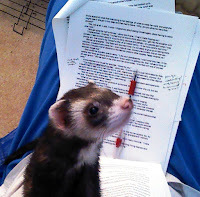 I'm an expert!Then start looking for a professional editor. However, ifyou want a professional critique on the content of your book – the plot,characters, overall writing style, and so forth – don’t wait until you thinkyou have a completely polished draft. If it turns out you have major problemswith the plot or character development, it’s better to identify those beforeyou’ve gone through 10 drafts and have proofread the whole thing.
I'm an expert!Then start looking for a professional editor. However, ifyou want a professional critique on the content of your book – the plot,characters, overall writing style, and so forth – don’t wait until you thinkyou have a completely polished draft. If it turns out you have major problemswith the plot or character development, it’s better to identify those beforeyou’ve gone through 10 drafts and have proofread the whole thing.Ask other writers for recommendations to editors. Try theSCBWI online discussion boards or local writers’ groups. Make sure the editorhas experience with the kind of writing you are doing. Someone who only writesfor adults is probably not the best editor for your children’s picture book.
Communicate clearly with a prospective editor to make sureyou know what you’re getting. Typically content or developmental editors lookat the big picture items. Copy editors and proofreaders can catchinconsistencies and spelling or grammar errors. Start by working with someonewho will focus on content, structure, and stylistic weaknesses. Don’t paysomeone to fix your typos when you might still have major changes to make. Askquestions or ask for a sample to make sure you are hiring the right editor foryour needs.
Professional Editors
Learn about my critique services here.
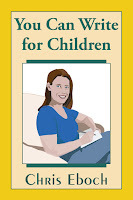 You can get this whole essay, and a lot more – including achapter on Advanced Critique Questions – inYou Can Write for Children: A Guideto Writing Great Stories, Articles, and Books for Kids and Teenagers.
You can get this whole essay, and a lot more – including achapter on Advanced Critique Questions – inYou Can Write for Children: A Guideto Writing Great Stories, Articles, and Books for Kids and Teenagers.Remember the magic of bedtime stories? When you write forchildren, you have the most appreciative audience in the world. But to reachthat audience, you need to write fresh, dynamic stories, whether you’re writingrhymed picture books, middle grade mysteries, edgy teen novels, nonfiction, orsomething else.
Order for Kindle,in paperback,or in LargePrint paperback.
Published on November 17, 2025 12:30
No comments have been added yet.



